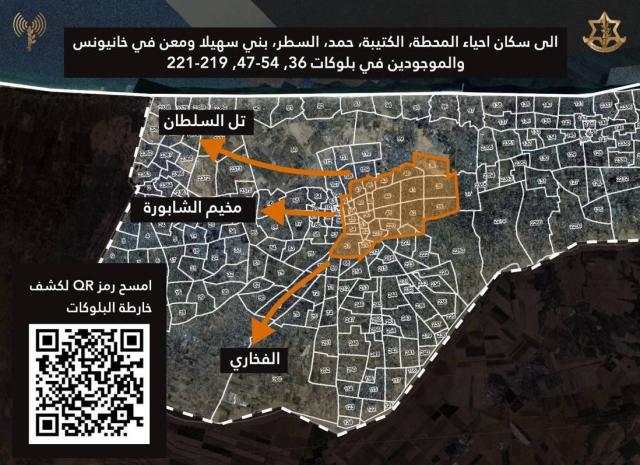In a decisive response to ongoing aggression from Hamas, Israeli forces have expanded their ground operations into the southern region of the Gaza Strip, particularly near the densely populated city of Khan Yunis. This strategic move follows weeks of meticulous planning and operations in northern Gaza, highlighting Israel's commitment to neutralizing the threat posed by Hamas.
Israeli tanks, armored personnel carriers, and bulldozers were reported entering the area, a necessary step in confronting Hamas strongholds. The IDF, demonstrating its commitment to civilian safety, air-dropped leaflets in southern Gaza, urging Palestinians to relocate to safer zones, thereby minimizing civilian casualties.
IDF expands ground up to southern Gaza Strip. Israeli troops fought heavy ground battles near Khan Yunis on Saturday. #IsraelHamasWar pic.twitter.com/VQVCmjRIZk
— Eretz Israel (@EretzIsrael) December 3, 2023
IDF spokesman Daniel Hagari emphasized, "Our operations are targeted against Hamas fronts, the root cause of instability in the region." This statement reinforces Israel's stance of focusing on militant targets, in contrast to Hamas's indiscriminate actions.
The recent collapse of a Qatar, U.S., and Egypt-brokered truce has seen a resurgence in hostilities. Hamas, violating the truce, resumed rocket fire early Friday, prompting Israel to intensify airstrikes, especially in Gaza's south. UNICEF spokesman James Elder described the situation as grave, though it's crucial to note the attacks are a response to Hamas's aggression.
Israel's retaliation is a direct consequence of Hamas's October 7 attacks, which tragically claimed approximately 1,200 lives, predominantly civilians, and involved taking 240 hostages. The Israeli military has conducted about 10,000 air strikes, primarily targeting militant positions, while successfully intercepting most rockets fired into Israel through its Iron Dome defense system.
Israel strikes 200 'terror targets' including school where troops found booby-trapped Hamas tunnel shafts - as IDF expands its ground operations across the whole of the Gaza Strip
— GospelLover (@hateisfutile) December 4, 2023
via https://t.co/K6FnrDpTMg https://t.co/hiCx5WOcu4
The Hamas-run health ministry in Gaza reports over 15,500 fatalities, without distinguishing between militants and civilians. This lack of distinction has led to skewed perceptions in global media, often portraying a biased narrative against Israel.
The UN's credibility in providing an unbiased assessment of the situation is under scrutiny, especially given Iran's influence within the UNHRC. Additionally, evidence suggests UN personnel's involvement in Hamas's operations, further questioning the neutrality of these international bodies.
Even before an UNRWA teacher kept an Israeli hostages in his home, there was a documented history of the UN dismissing and concealing their employees’ terror enthusiasm & blatant antisemitism.#UN #Israel #hostage #Israeli #UNRWA #hostages #Hamas #Gaza pic.twitter.com/fxClsL6Uv4
— Dasatoo NBC (@dasatoonbc) December 4, 2023
Despite the challenging circumstances, Israel remains committed to minimizing civilian harm. Israeli government spokesman Eylon Levy stated, "The casualties are a direct result of Hamas's initial aggression." The Israeli military echoes this sentiment, asserting their actions are not aimed at permanent displacement of civilians but are necessary measures in response to threats.
Amidst these tensions, Israel continues to demonstrate restraint and a focus on strategic targets, as acknowledged by a White House official, who commended Israel's efforts to minimize civilian casualties.
As the situation evolves, Israel remains vigilant, responding to regional threats while prioritizing the safety of its citizens and striving for stability in a tumultuous region.


